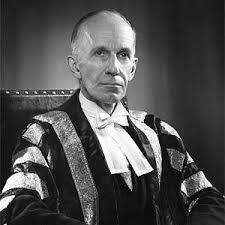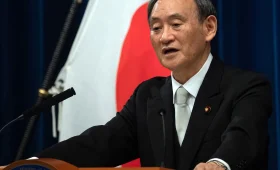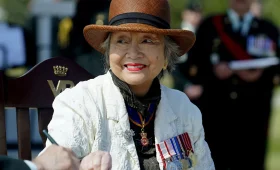memme.info – Vincent Massey, who served as the Governor General of Canada from 1952 to 1959, is remembered as one of the most influential and culturally significant figures in Canadian history. A distinguished diplomat, politician, and intellectual, Massey brought a sense of modernity and vision to the role of Governor General during a period of profound transformation in Canada. His tenure coincided with the post-World War II era, a time when Canada was asserting its identity on the international stage and undergoing significant social, political, and economic change. Massey’s leadership, marked by a deep commitment to the arts, Canadian culture, and national unity, helped shape the evolution of the Canadian Crown and the country’s relationship with the British monarchy.
Early Life and Career
Vincent Massey was born on February 20, 1887, in Toronto, Ontario, into an influential and wealthy family. His father, Hart Massey, was a prominent businessman and philanthropist, and his grandfather, a successful entrepreneur, laid the foundations for the family’s fortune. Growing up in an environment of privilege, Massey received an excellent education, attending the prestigious Upper Canada College and later studying at Oxford University, where he graduated in 1911 with a degree in modern history.
After completing his education, Massey entered the field of diplomacy, beginning with a post in London as a representative of the Canadian government. His early career was shaped by his deep understanding of history, culture, and international affairs. His diplomatic skills were highly regarded, and he would later become Canada’s first High Commissioner to the United Kingdom in 1926, a position that cemented his standing in Canadian public life.
Massey’s career was also marked by his involvement in the world of arts and culture. He was a passionate supporter of Canadian arts, serving as a director of the National Gallery of Canada and a prominent figure in Canadian cultural circles. His contributions to the development of Canadian culture were substantial, and he championed the idea of promoting a distinct Canadian identity.
Appointment as Governor General of Canada
In 1952, Vincent Massey was appointed as the 18th Governor General of Canada, succeeding the Earl of Athlone. His appointment marked a significant moment in Canadian history, as Massey was the first Canadian-born individual to hold the office. The decision to appoint Massey, who had previously represented Canada on the international stage, was a reflection of the changing nature of Canada’s relationship with the British monarchy and a recognition of Canada’s increasing maturity as a nation.
Massey’s appointment was well received across the country. His background as a diplomat and his long-standing commitment to Canadian culture and national identity made him a fitting choice for the role of Governor General. His appointment represented a break from the tradition of British aristocracy in the position, signaling a new era in which the Governor General would be a Canadian who understood the unique character and aspirations of the country.
Leadership and Contributions During His Tenure
Vincent Massey’s tenure as Governor General was marked by his commitment to fostering a strong sense of Canadian identity and unity. He understood the challenges facing the country as it navigated the complexities of post-war recovery and its growing international role. Massey’s leadership reflected a modern vision of Canada, one that was increasingly confident in its place on the world stage.
Promoting Canadian Culture
One of Massey’s most enduring contributions during his time as Governor General was his promotion of Canadian culture. He was a staunch advocate for the arts, education, and the development of a national identity that was distinct from British influence. Massey’s involvement in cultural institutions, including his role as a patron of the arts and his work with the National Gallery of Canada, helped to elevate Canadian culture both domestically and internationally.
In 1951, a year before Massey’s appointment, the Massey Commission on the Arts, Letters, and Sciences was established to investigate the state of Canadian cultural institutions. The commission’s recommendations, many of which were implemented during Massey’s time as Governor General, helped to shape the future of Canadian arts and culture. The creation of national cultural institutions, the expansion of funding for the arts, and the encouragement of Canadian creativity were all part of his vision for a more culturally independent Canada.
Modernizing the Role of Governor General
During his tenure, Massey worked to modernize the role of the Governor General and to strengthen the office’s connection to the Canadian people. He traveled extensively across the country, visiting communities from coast to coast, and engaging directly with Canadians from all walks of life. Massey was particularly attentive to the needs of indigenous communities, and his outreach helped to elevate the voices of Canada’s First Nations in national conversations.
Massey also worked to increase the visibility of the Governor General’s office and ensure that it represented the changing demographic and cultural landscape of Canada. His efforts to bridge the gap between the British monarchy and Canada’s evolving national identity helped establish the office of the Governor General as one that was distinctly Canadian, yet still symbolically tied to the Crown.
Canada’s Role in the International Arena
Vincent Massey’s diplomatic background allowed him to play a crucial role in strengthening Canada’s international relationships during a time of global tension. The early years of the Cold War presented unique challenges for Canada, and Massey’s experience in international affairs allowed him to serve as an effective representative of Canada on the global stage. He worked closely with Prime Minister Louis St. Laurent and other Canadian leaders to assert Canada’s role in the post-war world order.
Canada’s increasing participation in the United Nations, NATO, and other international organizations was a key focus during Massey’s tenure. He worked to ensure that Canada’s voice was heard on global issues, particularly those related to peace, security, and human rights. His advocacy for multilateral diplomacy and Canada’s involvement in global peacekeeping efforts helped define Canada’s foreign policy during the 1950s.
Legacy and Conclusion
Vincent Massey’s time as Governor General was a period of transformation for Canada. His leadership, vision, and commitment to Canadian culture and national identity left a lasting legacy. He was instrumental in advancing Canada’s cultural development, modernizing the office of the Governor General, and promoting Canada’s growing role on the international stage. Massey’s promotion of the arts and his involvement in key cultural initiatives helped shape Canada’s cultural institutions, and his work to foster national unity during a time of social and political change remains one of his most significant contributions.
Massey’s tenure as Governor General ended in 1959, but his influence continued to be felt long after his retirement. His legacy lives on in the institutions he helped create and the cultural and diplomatic direction he set for Canada in the 20th century. He is remembered as a statesman, intellectual, and cultural leader who helped shape Canada’s path toward becoming a confident and self-assured nation. Vincent Massey’s leadership is an integral chapter in the history of Canada’s evolution as an independent country, and his contributions continue to be celebrated today.



